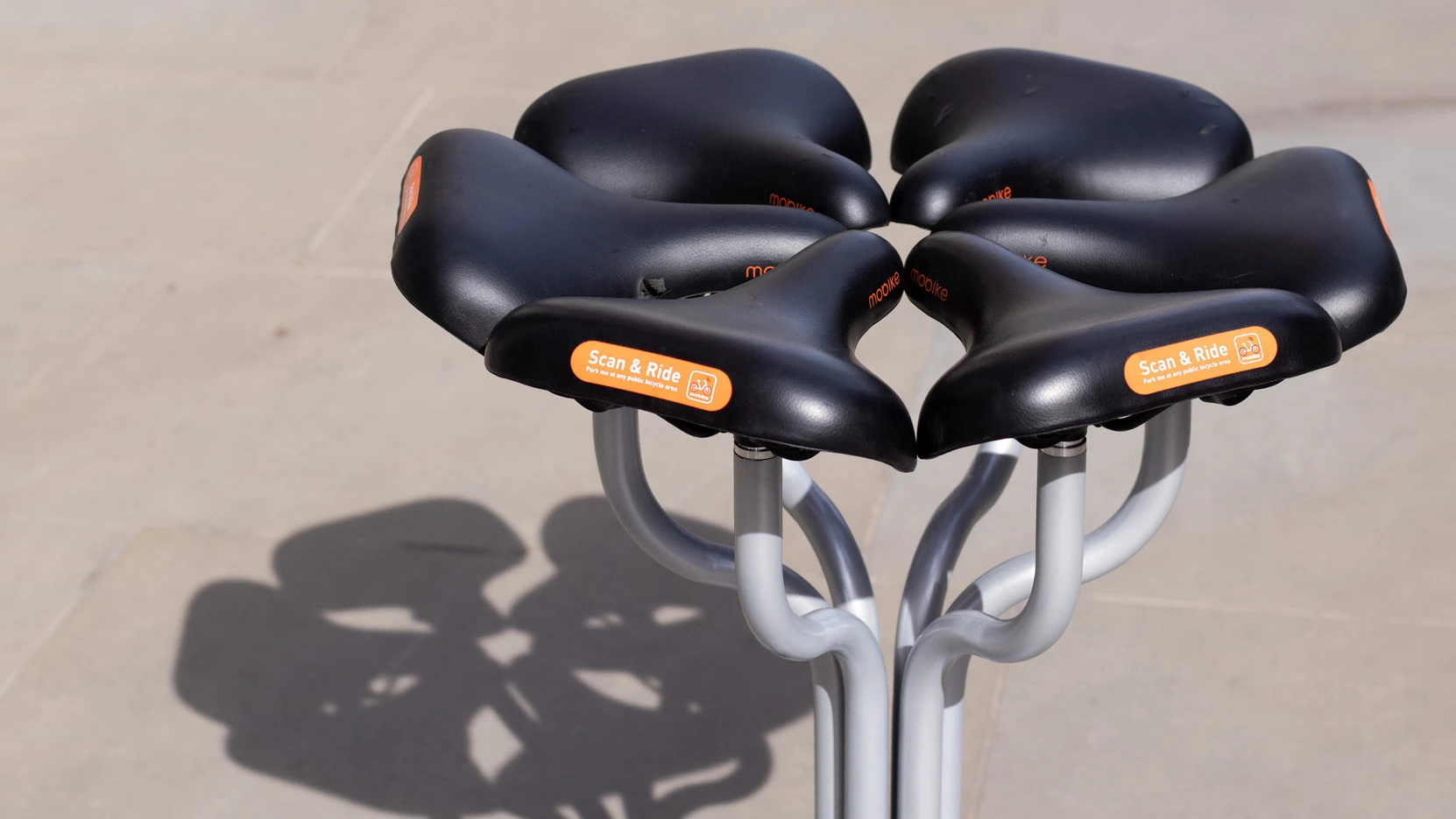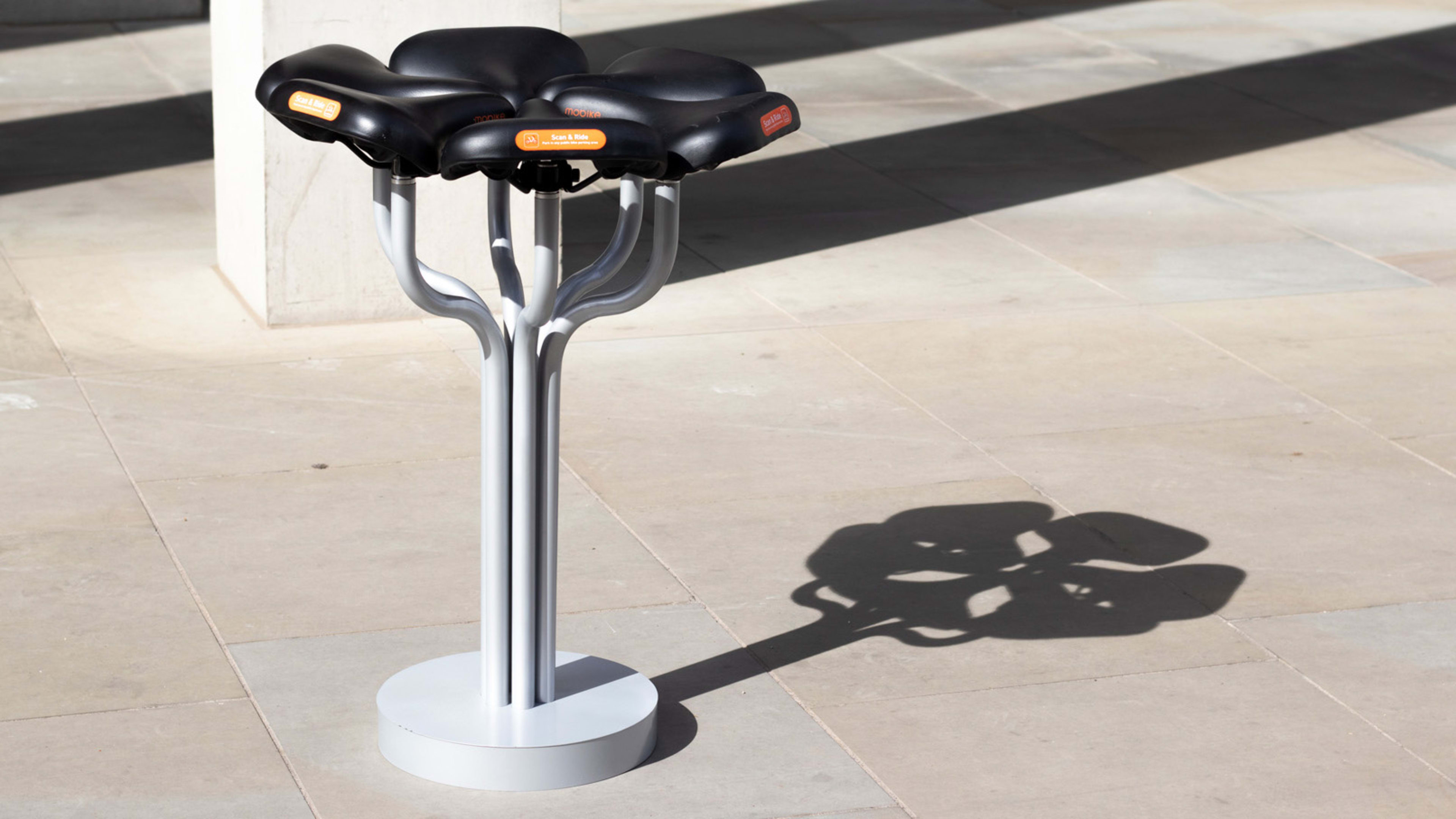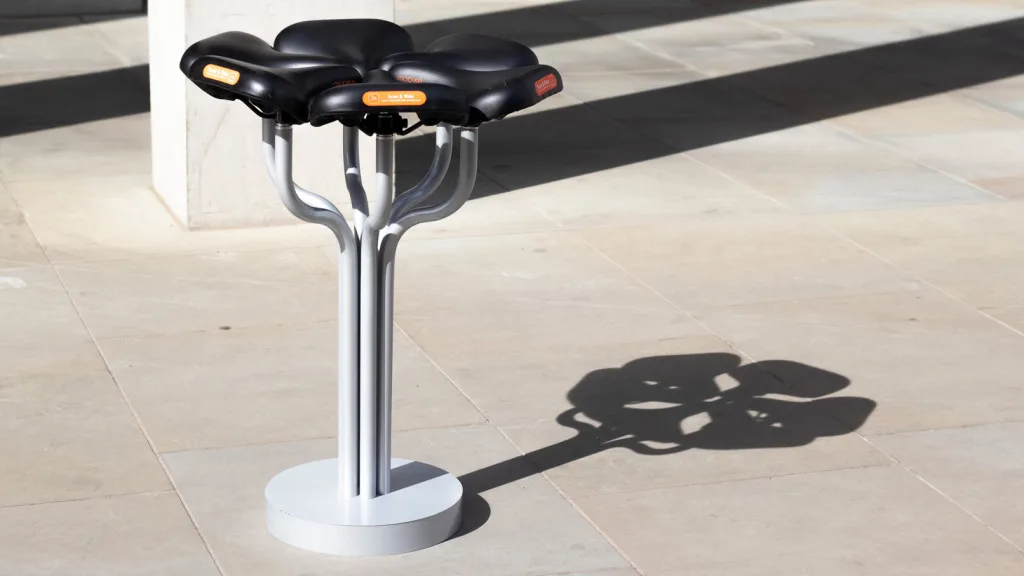In the last few years, China’s bike-share bubble burst: While upwards of 60 companies were once competing for riders on the country’s streets by flooding cities with millions of sharable bikes, many of them have now gone bankrupt. The result? Bicycle graveyards, where the government has dumped thousands of unused bikes to stop them from cluttering up public space.
What could be done with all those bicycles? Industrial designer Qiang Huang thinks they should be broken down and turned into furniture. For his master’s thesis project at Central Saint Martins, Huang designed a series of household furniture out of discarded bike parts, including a lamp made out of a mud guard and a stool made out of a ring of saddles arranged in a circle like a flower. Called Bike Scavengers, the project presents a creative way to reuse materials that would otherwise be left to collect dust.

Huang, who is currently based in London, worked with the local outpost of the Chinese bike company Mobike, which granted him access to one of its U.K. warehouses where Huang was able to take bicycle parts for the project. He intends the furniture to be a critique of companies like Mobike, which is the biggest dockless bike operator in the world. “They just care about grabbing market share regardless of how many bikes people really need and how many resources are wasted or overproduced,” Huang says.
While the objects are not currently for sale, Huang says he would like to find ways to sell them as products. After all, the more he sells, the more parts that could be salvaged from bike graveyards, turning a colossal waste into beautiful objects fit for any bike aficionado’s home.
Recognize your brand’s excellence by applying to this year’s Brands That Matter Awards before the early-rate deadline, May 3.








